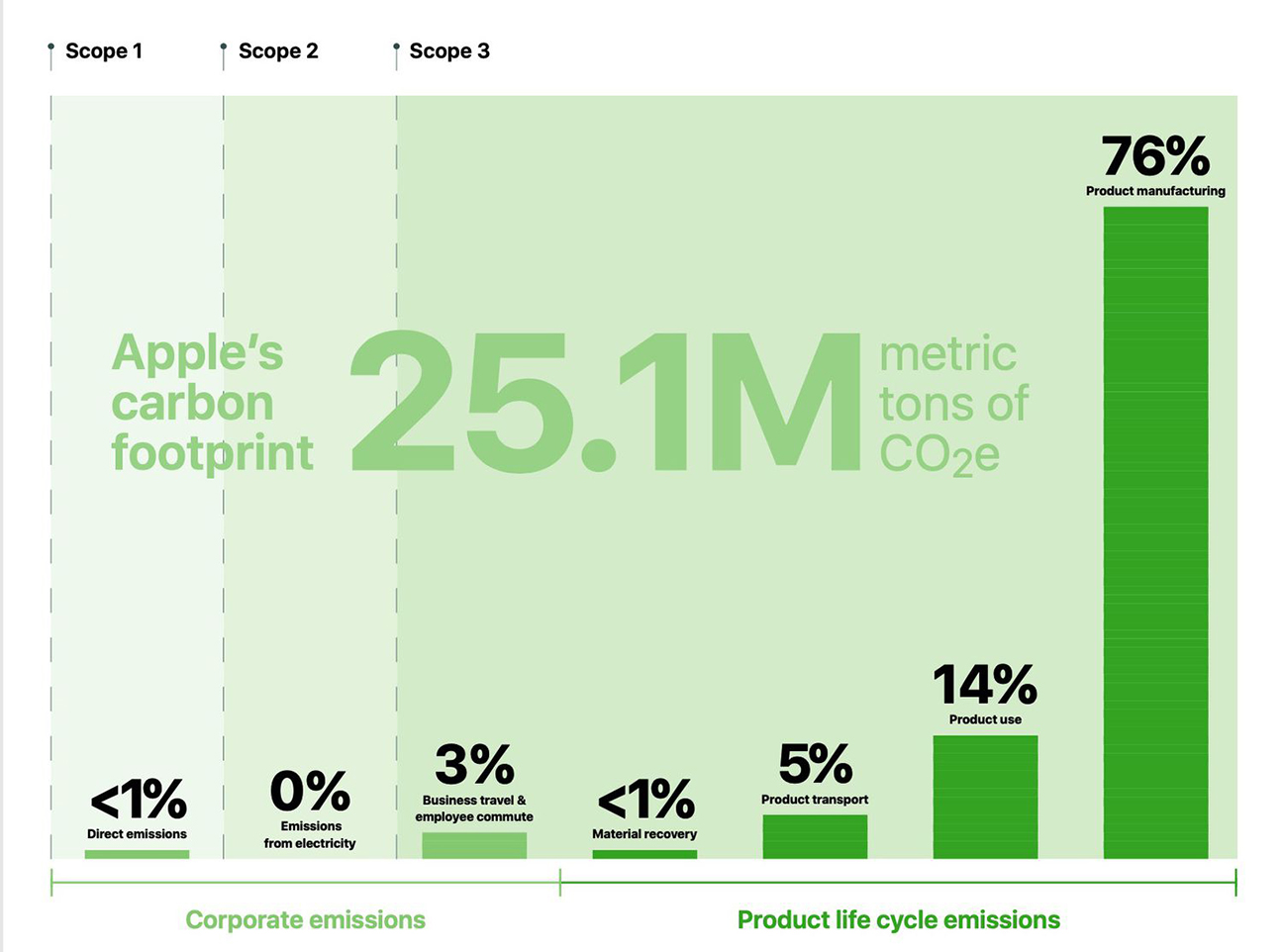Apple, renowned for its leadership in sustainable practices, recently faced scrutiny over the carbon neutrality claim for its latest Apple Watch. The Institute of Public and Environmental Affairs (IPE), a respected Chinese environmental research organization, released a report questioning whether Apple’s assertion of carbon neutrality amounts to “climate-washing.” As the majority of Apple products are manufactured in China, the report delves into the greenhouse gas emissions associated with the production processes, raising concerns about transparency and the effectiveness of Apple’s environmental efforts.
In a high-profile environmental campaign, Apple declared its new Apple Watch as the company’s first-ever “carbon neutral” product on September 12. However, the IPE’s September 22 report challenges this claim, suggesting that Apple might be overstating its climate change mitigation efforts, a phenomenon known as “climate-washing.”
The IPE, acknowledged for its extensive analysis of China’s manufacturing sector, questions Apple’s lack of transparency regarding its suppliers. The report argues that Apple has not disclosed enough information about the suppliers involved in the manufacturing of its products, especially the Apple Watch, to substantiate the carbon neutrality claim. The organization also notes a decline in data disclosure, with fewer suppliers sharing greenhouse gas emissions data in 2023 compared to previous years.
IPE’s analysis reveals that Apple’s suppliers heavily rely on renewable energy certificates, the efficacy of which has been questioned, instead of directly utilizing renewable energy sources. The report suggests that Apple might need 100 percent renewable energy to truly achieve carbon neutrality. Moreover, the IPE questions whether Apple’s reported reduction in greenhouse gas emissions for its new iPhone 15 Pro is a result of reallocating renewable energy from other products.

Apple responded by stating that the carbon neutrality of its Apple Watch has been independently verified by SCS Global Services. The company emphasized its commitment to renewable energy and noted that the greenhouse gas emissions for the new iPhone 15 Pro are 28 percent lower than the 2015 baseline. However, the IPE argues that more transparency is needed to validate these claims, especially in light of the reduced disclosure by suppliers.
The IPE has a history of holding Apple accountable for environmental practices. While Apple improved its transparency and environmental practices following scathing reports in 2011, the recent IPE report raises concerns about a potential regression in public disclosure. The number of suppliers disclosing greenhouse gas emissions data has reportedly decreased, leading to questions about Apple’s commitment to transparency.
Experts such as Joseph Romm question Apple’s definition of carbon neutrality, especially when associated emissions for certain products increase. Romm emphasizes that Apple’s approach to achieving carbon neutrality may be less ambitious than other industry standards, such as those outlined by the Science Based Targets initiative. The effectiveness of carbon offsets, which Apple uses to neutralize emissions, has also come under scrutiny.
A significant challenge in Apple’s quest for carbon neutrality lies in the electricity its suppliers use for manufacturing. While Apple has made substantial investments in renewable energy, including projects in China and Japan, the vast majority of its products are manufactured in a region where a substantial portion of the grid relies on coal.
As Apple strives to achieve carbon neutrality for all its products by 2030, the recent scrutiny highlights the complexities associated with manufacturing practices, supplier transparency, and the use of renewable energy. The global community, including environmental organizations and industry experts, calls for increased transparency, adherence to higher standards, and a commitment to truly sustainable practices in the pursuit of a carbon-neutral future.






